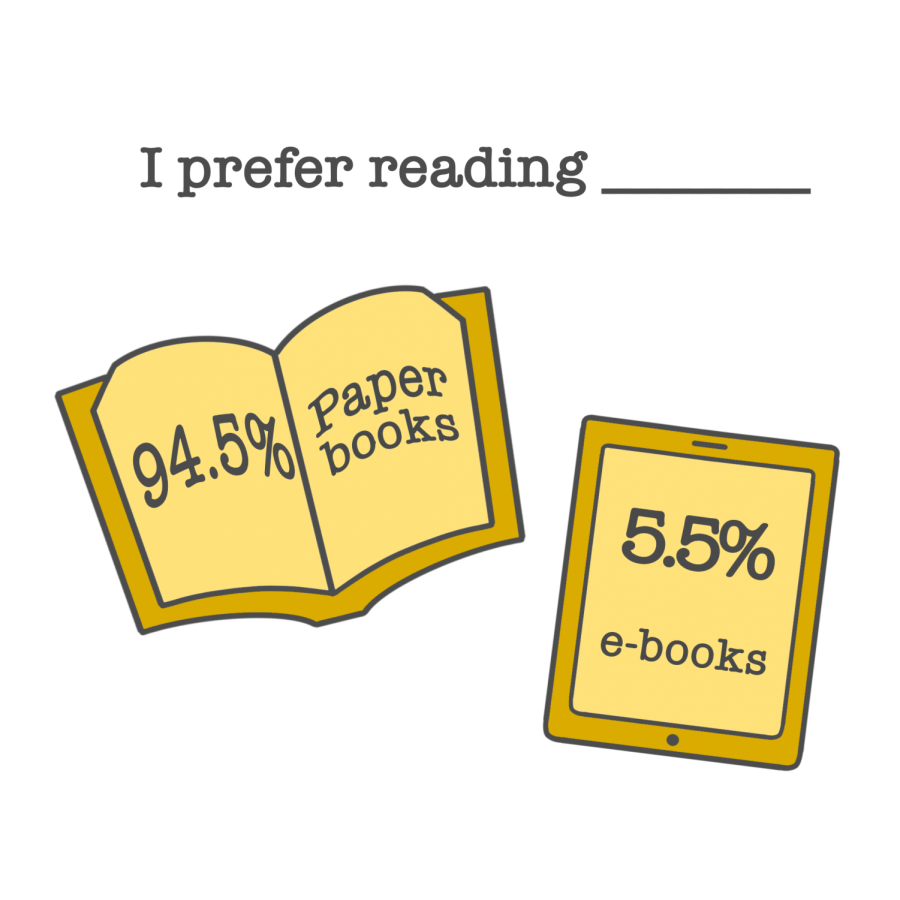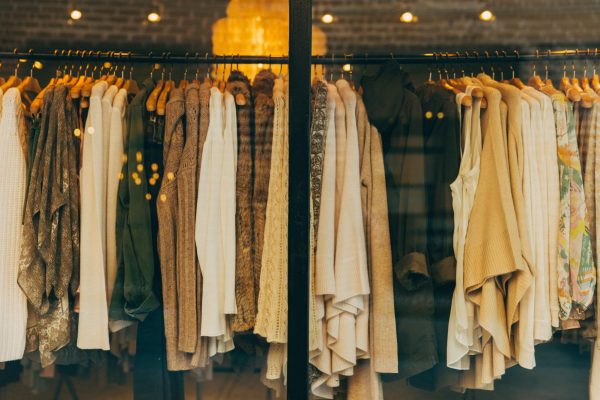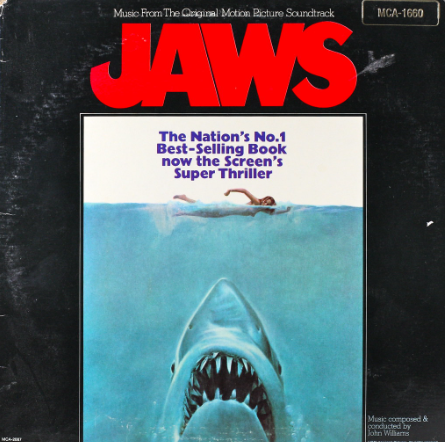Paper books continue to triumph in the fight against e-books
BLOT GRAPHIC BY VIOLET LONGBONS
A survey of 55 students from Apr. 6. to Apr. 13.
May 5, 2021
With GPS systems taking over handheld maps and digital contact lists overthrowing phone books, new technological improvements introduced to society continue to replace products.
When it comes to books, however, the print industry continues to fight back against electronic reading.
There is no doubt that when electronic books, also known as e-books, were first introduced to society, the print industry’s popularity faced a huge threat. However, the print industry quickly retaliated.
According to BBC, Kindle sales peaked at 13.44 million purchases in 2011 but fell to 9.7 million just a year later.
The discussion of why e-books have become so popular revolves around the idea that they are beneficial to not only the reader but also the environment.
According to Owlcation, e-books are superior in comparison to printed books because of their convenience.
Unlike printed copies, e-books are more portable, can be read in the dark, easily purchased, space-friendly, environmentally friendly and more.
Junior Dani McLaughlin of Tinton Falls said that although e-books are notably more convenient, she still enjoys reading paper books.
“Even though I prefer paper books, I think the Kindle or another electronic reading device is the better option,” McLaughlin said. “They’re far less wasteful of both space and resources. However, I think reading from a physical book is more enjoyable and better for comprehension.”
The print industry is still in the battle despite its tough competitor.
The Association of American Publishers said printed books still ruled the overall book industry with $3 billion worth of sales in 2019.
Printed books can also hold memories, as a printed version of a book gives readers the chance to dog ear the pages, write notes in the margins or share books with friends.
Junior Ryan Hart of Freehold noted that the point of reading can only be achieved when reading a physical book.
“I think reading print books is the better option because I feel that by reading you’re supposed to be letting your brain relax from a screen,” Hart said, “and if you are reading off of an electronic device that kind of ruins the purpose of reading.”
The on-and-off popularity contest between the electronic and print book industries continues to this day, despite interest surges in both departments.
Although paper and e-books both have clear benefits, McLaughlin considers printed books the better option.
“I prefer reading a printed book mainly because I feel more connected to a physical book,” McLaughlin said. “I… love to smell new books when I [buy] them. Honestly, nothing beats the feeling of opening up a good book for the first time.”














